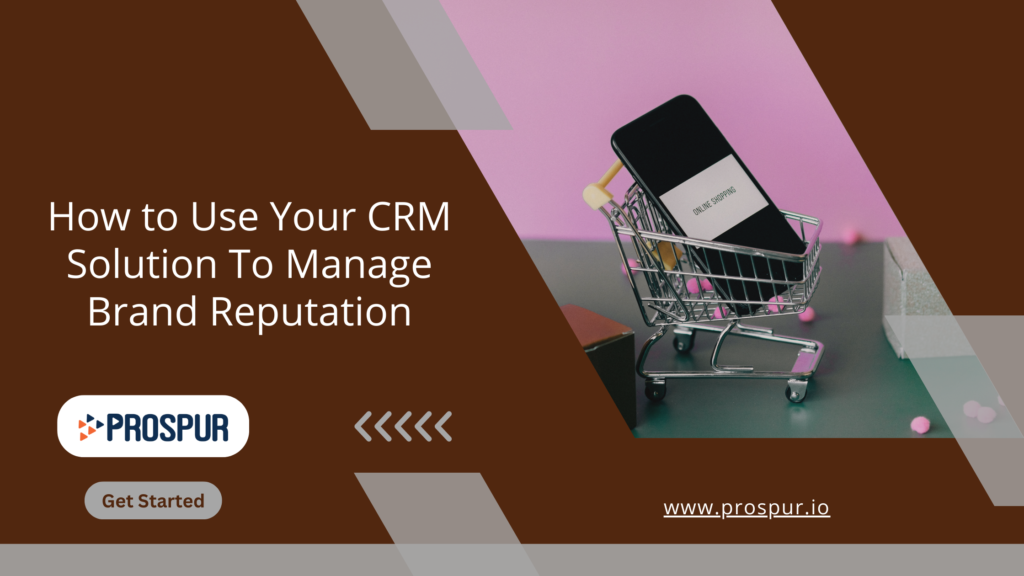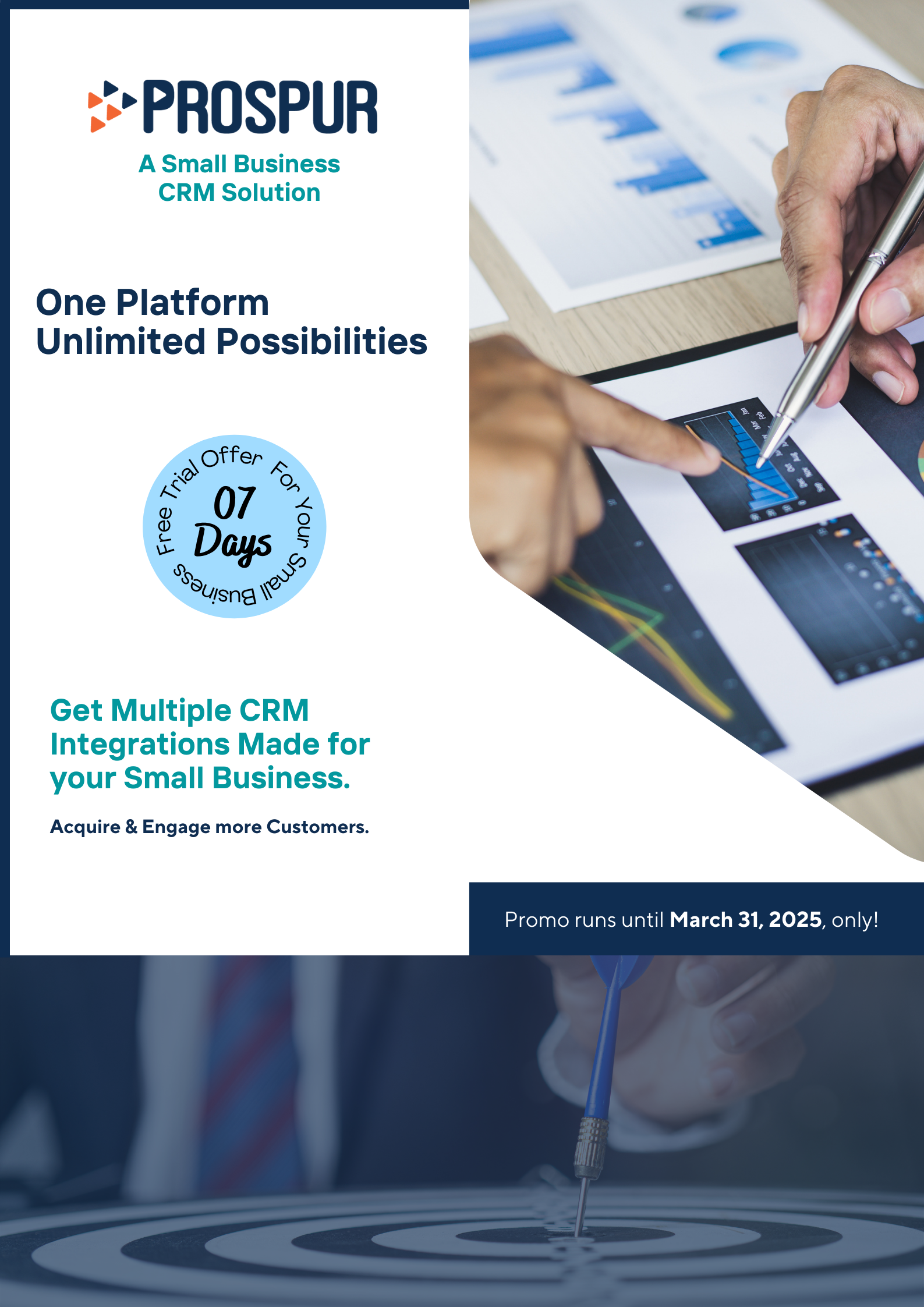How to Use Your CRM Solution to Manage Brand Reputation?
Editorial StaffJanuary 17, 2024

Over 70% of brand managers, irrespective of the company size, consider building the brand image more important than converting sales.
But why? Shouldn’t sales be the ultimate target of any company? Well, the answer is yes and no. Consider these numbers –
- It takes 5 to 7 impressions of a brand for people to remember it.
- Businesses can increase revenue by 23% if they present the brand consistently across all platforms.
- Businesses with poor branding end up paying 10% higher salaries.
- 89% of customers stay loyal to a brand they share their values with.
- 68% of men and 64% of women feel an emotional connection with the brand they are loyal to.
As we can see, getting sales conversions and higher revenue is a natural outcome of the right branding. So, why put 100% focus on the stem when the gold is in nurturing the root?
Reputation Management Best Practices – Using a CRM:
A CRM system lets you approach a customer’s journey holistically. It provides deep data insights in the form of reports and gives visibility of all the customer touchpoints.
Your branding team can leverage this information to send the right message out in the market. Here are a few points on how a CRM is useful for a company and its brand’s reputation –
#1. Content Marketing
Use customer data insights to send highly targeted email campaigns that share only the relevant information.
CRM system collects information such as past buying history, spending pattern, age group, profession, and more that tells you what a customer wants before they even know it.
Rather than pushing the customers to purchase (push marketing), content focuses on sharing quality information with a call-to-action (pull marketing).
Your email campaigns could have eBooks, blogs, infographics, and success stories that entice a customer to buy the product or service.
#2. Improve Customer Satisfaction
Remember the last time you called customer care and got an answer within minutes vs. another call where you had to struggle for a week to get a resolution?
Which brand would you choose the next time you purchase? A CRM system keeps track of all the tickets the customer has raised in the past and their resolution.
You get instant access to a knowledge management system to extract the information your customer needs at a single click, elevating customer satisfaction to the next level.
#3. Better Customer Experience
Most customers feel pushed to buy a product or service without getting satisfactory answers to their questions. If a customer calls you and still feels pushed, that is no better than shooting yourself in the foot.
From an unqualified lead to a deal won, a customer goes through different stages of a sales funnel. When a customer calls, you want to be ready with everything they need to complete the transaction to their satisfaction.
A CRM system helps you naturally guide the customer to an outcome where they end up buying your product or service, thus enhancing your brand’s image.
#4. Detect & Handle Negative Reviews
How often do you feel unheard when a brand responds to your review with a standard response template and fails to take any action on it? Customers trust brands that respond to all reviews, especially the negative ones.
Negative sentiment spreads like wildfire. Reviews are visible publicly, and potential customers read them before reaching out to you.
Tracking all the reviews and responding to the negative ones quickly is important. This is where social media listening tools built inside the CRM help you become a customer-centric brand.
#5. Personalize Customer Interactions
A CRM for customer service has a 360-degree view of each client, including their challenges, needs, interests, products, and support tickets.
This information helps your sales agent to set up a personal rapport with the customer rather than giving standard answers.
This generates brand loyalty and reputation, and your existing customer becomes your brand’s ambassadors sending you leads without any cost.
#6. Increase Employee Satisfaction
In the race to develop their brand reputation for customers, many businesses ignore their employees. This is a big mistake.
Studies show that employees that engage with the brand and its processes perform 20% better than those who don’t engage. A CRM system helps you track employee performance and reward those doing well.
You can support the ones lagging with necessary training and development. An employee feedback system from the customer further enhances their motivation to serve.
#7. Leverage Testimonials & Success Stories
A recommendation from someone with no vested interest in your brand carries so much more weight than a traditional advertisement. This rule was true decades ago and still holds its ground.
Use the CRM system to incentivize or encourage customers to share their success stories through short videos or text on your social media platforms.
#8. Focus on Social Media Engagement
With one-third of the world’s population on social media, you cannot afford to leave the market untapped. A CRM system integrates with all your social media channels and lets you strategize the marketing from a single portal.
You can see the result of all your campaigns on a single dashboard and tweak them for maximum results.
CRM systems also directly log and allocate a ticket to an agent when customers interact with your brand using a chatbot, Facebook post, or tweet.
By using these insights from a CRM system, your marketing team can set up a brand reputation management plan.
Setting Up a Reputation Management Plan:
Reputation management is a regular activity as long as the business runs. Your reputation management plan depends on the nature of your business, products or services, and the target market.
There is no one-size-fits-all solution. Use the features of your CRM system and follow these guidelines to start.
- Research & Audit – Collect data from reviews, post comments, and chats about your brand and run an audit to see what customers are talking about you. Know the public sentiment and tweak your reputation management plan accordingly.
- Establish a Management Strategy – Once you have a track of all online conversations, answer these questions –
- Who will monitor all online conversation reports?
- What are your parameters for deciding which comments to reply to?
- What is your tone guide for responding to comments?
- Take Necessary Actions – Take the criticisms in a good stride and address the areas that need improvement. By taking action to improvise and update your customers about it, you can skyrocket your brand’s image. How many brands out there are doing it?
Keep repeating the three steps above, and tailor them to your brand.
Summing It Up:
The business landscape is evolving at a fast pace, and brand management is no longer a luxury reserved for large enterprises only.
Startups and other small and medium businesses (SMBs) are mushrooming with products and services that disrupt the market every other day.
Numerous SMBs can potentially become tomorrow’s unicorns, and you need a CRM that is easy to use and can scale up when needed.
The CRM features we discussed above were once unaffordable for SMBs. But that is not the case anymore. Cloud-based CRMs for SMBs are now providing all these capabilities at affordable tier-based rates.

